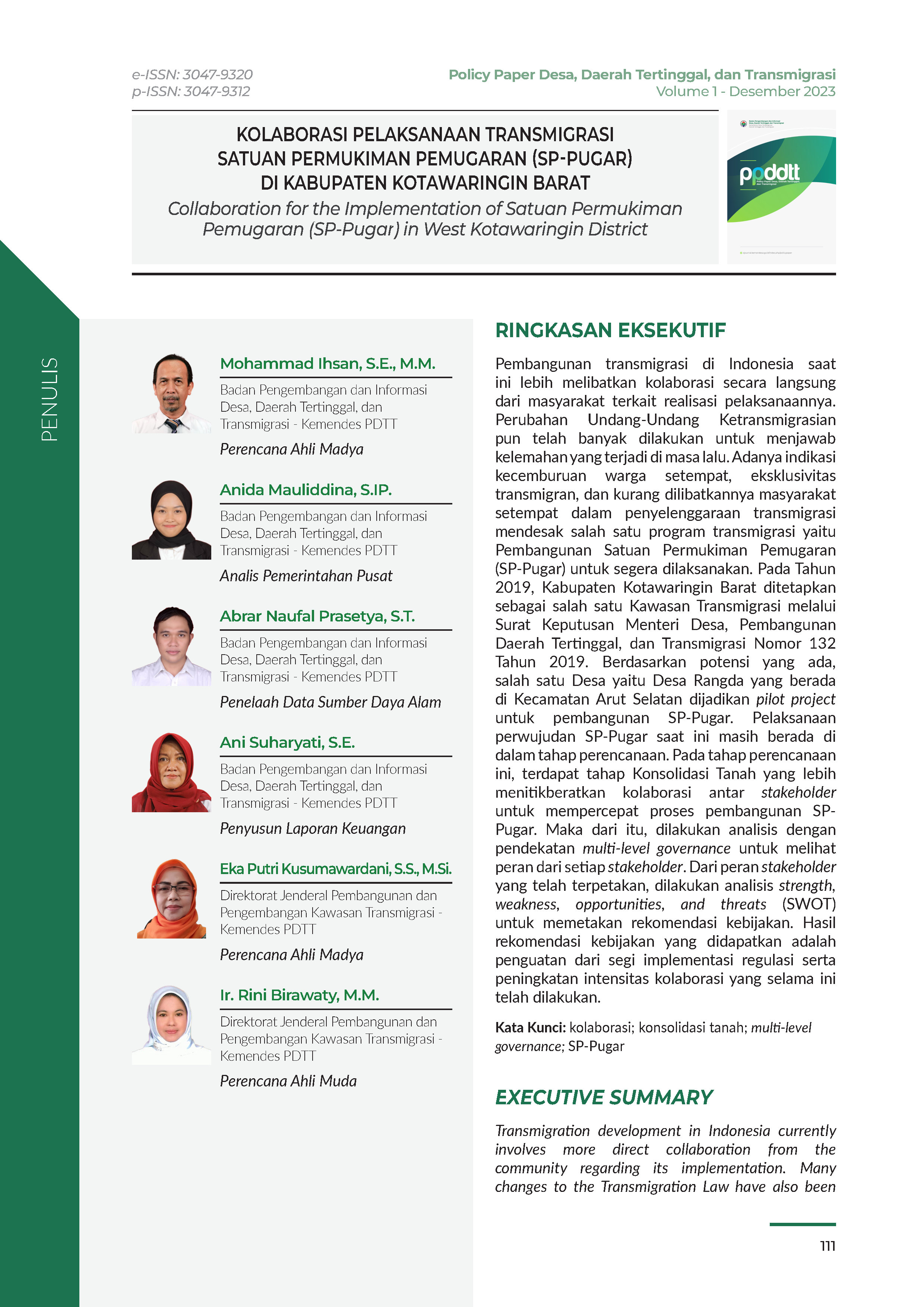Collaboration for the Implementation of Satuan Permukiman Pemugaran (SP-Pugar) in West Kotawaringin District
Keywords:
collaboration, land consolidation, multi-level governance, SP-PugarAbstract
Transmigration development in Indonesia currently involves more direct collaboration from the community regarding its implementation. Many changes to the Transmigration Law have also been made to anticipate weaknesses that occurred in the past. There are indications of the emergence of local residents, the exclusivity of transmigrants, and the lack of involvement of local communities in the implementation of transmigration, which urges one of the transmigration programs, namely the 'Satuan Permukiman Pemugran' (SP-Pugar), to be implemented immediately. In 2019, West Kotawaringin Regency was designated as one of the Transmigration Areas through the Decree of the Minister of Villages, Development of Disadvantaged Regions, and Transmigration Number 132 of 2019. Based on the existing potential, one of the villages, namely Rangda Village in Arut Selatan District, was appointed as a pilot project for SP-Pugar. The implementation of SP-Pugar is currently still in the planning stage. At this planning stage, there is a Land Consolidation stage. At this land consolidation stage, collaboration between stakeholders is more emphasized to speed up the SP-Pugar development process. Therefore, the analysis was carried out using a multi-level governance approach to see the role of each stakeholder. From the stakeholder roles that have been mapped, a strengths, weaknesses, opportunities and threats (SWOT) analysis is carried out to map policy recommendations. The results of the policy recommendations obtained are strengthening in terms of regulations implementation and increasing the intensity of collaboration that has been carried out so far.
Downloads


